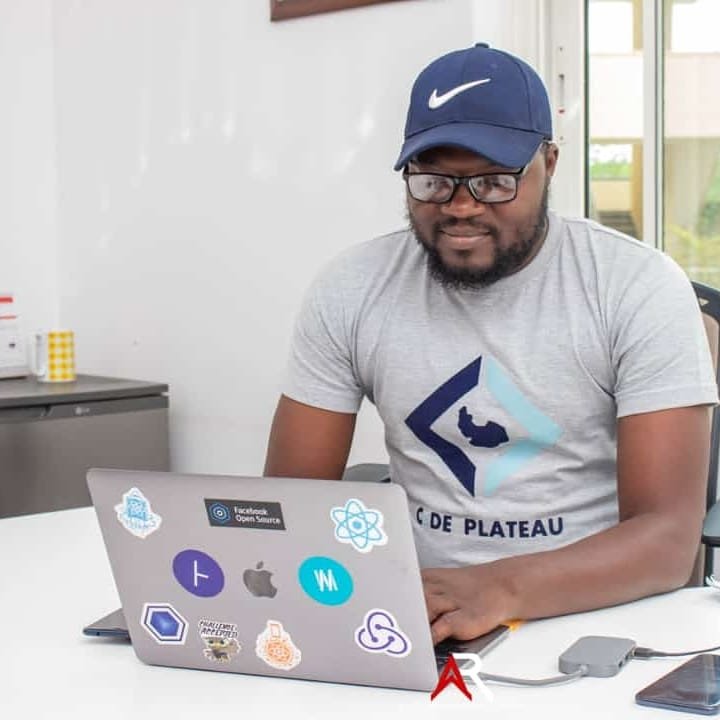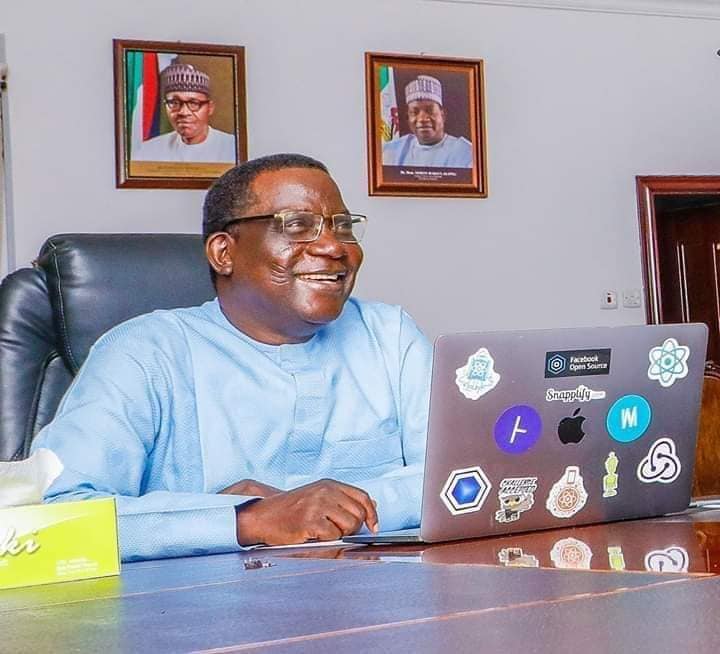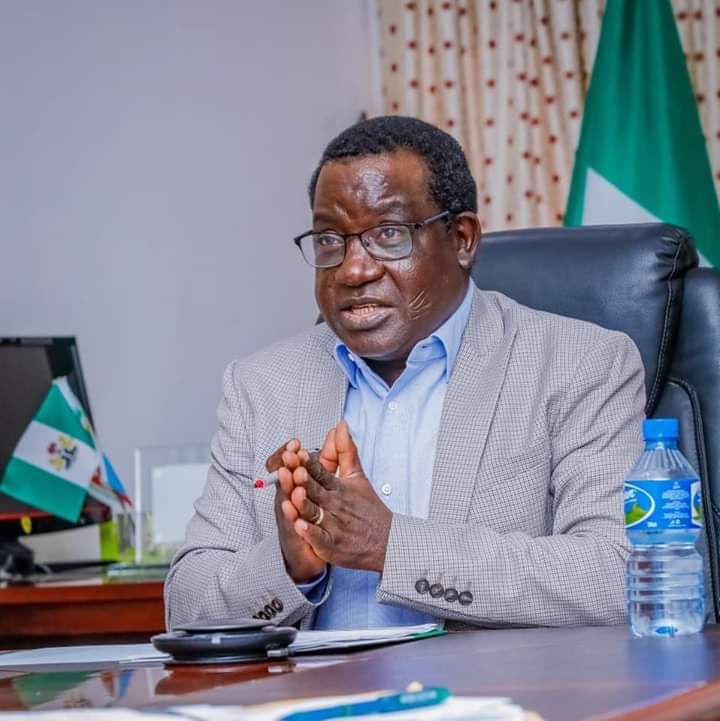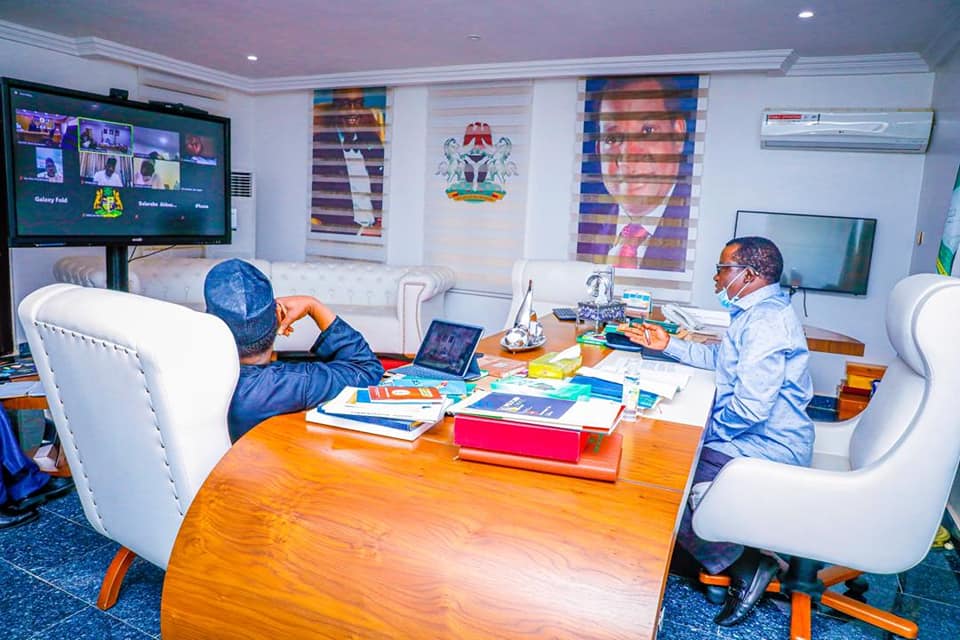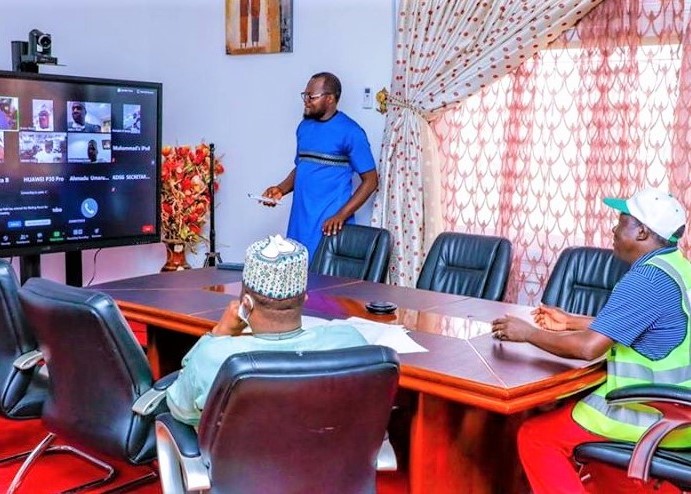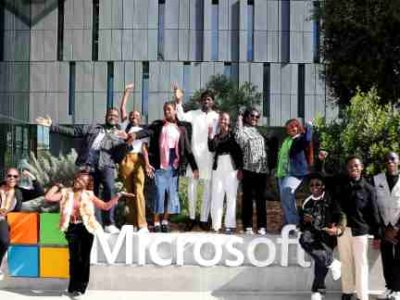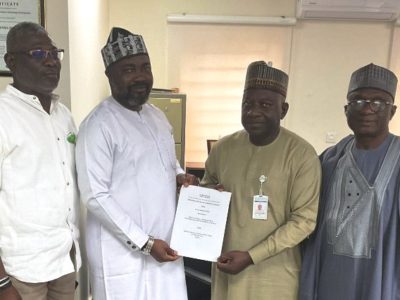Plateau State, central Nigeria, is not your typical go-to place for technology investment or deployment. But the state government is quietly pushing change in that direction through the Plateau Information and Communication Technology Development Agency (PICTDA). The agenda is people centric, says Director General of PICTDA, Daser David in this chat with IT Edge News. Plateau wants to build a critical mass of tech-skilled youths for the global knowledge market and is implementing policy frameworks to endear investment and remodel how government business is delivered leveraging technology. Daser shares the roadmap with Emmanuel Yinka Fagbenle.
Governor Simon Lalong recently celebrated one year in office for his second tenure. What’s on your list of achievements by the governor in the area of ICT?
Under the guidance and support of Governor Simon Lalong in the first year of his second tenure, one of his achievements would be tremendous support of his administration for the Code Plateau Initiative through which PICTDA has been building tech skills in young people to be part not just part of Nigeria but the global digital economy. The agency recorded a success rate in turn-up and certified participants at the end of the training. The second cohort is just starting. The Code Plateau Initiative is part of a larger framework for digital inclusion and skill-building within the Silicon Plateau agenda by Governor Simon Lalong to rework the state’s economy and leverage global IT opportunities.
The e-Government policies of the “Rescue Administration” has already been activated. It sets a template to drive speed, efficiency, and save costs in the delivery of government services to the citizens.
Also, the state is at the forefront of technology implementation and deployment. First with the utilization of CCTV to monitor and police the borders, ensure effective surveillances over entry of people as part of measures to reduce spread of COVID-19. Noteworthy is that we are the first state in Nigeria to have used online platform to issue movement permit during the COVID-19 pandemic lockdown.
COVID 19 has changed everything. What are the three or so areas the pandemic has altered your plans for good or bad as a technology agency?
One of the ways the presence of COVID-19 has been beneficial for the agency is that it created a huge and sudden demand for connectivity and data sharing making us highly relevant because virtually everything was driven by technology.
Government moved away from the normal practise to going fully online. For the first time, we had the exchange of emails going almost like a 100% for data sharing and distribution. The use of Online Streaming Services to conduct meetings and conferences.
There was a huge need for adaptation and use technology fort better results including using CCTV for surveillance at the borders and also implementation of the online pass.
Our People now see the role of technology in their daily operations so the agency is being appreciated the more and we will continue to increase our effort to encourage more young people toward innovations; creating solutions that address our unique needs.
The downside to COVID-19 presence is that a whole lot of projects just have to be held-off for now because the fact remains that we can’t have a crowd or gathering of large people, meaning we can’t go on with our traditional training means, apart from utilizing online means like ‘Zoom’ and other platforms.
The presence of COVID-19 has created a new normal that is driven by technology. We have more relevance in governance so expect a few months from now, there would be massive adoption of technology in every aspect of our lives both in the public and private sectors which naturally would not have happened this fast.
Your agency had before COVID-19 unveiled a roadmap for skill building in youths across Plateau state and development of local government funded ICT resource centres. What is the position of things now?
Although the presence of COVID-19 has disrupted our initial idea and plans, we have adapted to go virtual and focus on where we have digital absence and communities without internet reach. It’s the best time to roll out our PICTDA On Wheels and transfer digital skill to the youth in this communities. For people living in city centres and other local government with access to internet, they can have access to our services on their phones and laptops.
There appears to be so much concentration on software development within the context of digital skills. Is PICTDA looking at encouraging hardware innovation by leveraging on development of drones for example or even 3D?
Initially, one of our ideas was to see that we created; a ‘Do It Your (DIY) Lab’s or ‘Makers Spaces’ with facilities like 3D printers, laser printers and many more where hardware developers could have access to tools needed to bring their ideas to life.
Although we don’t see that happening this year, but hopefully by next year, we will have the first ‘Makers Spaces’ Labs in Nigeria that would be government owned and funded to spur creativity on innovation around the hardware segment.
Our focus this year would be more on software innovations. First of all, we want to allow people to embrace technology as it is, and then show them diverse doors within the field that they can actually benefit from. While we are trying to create awareness and sensitize more people to pick interest in technology, the ‘Makers Spaces’ aka ‘DIY Labs’ would be up and running next year. In addition, for the Code Plateau second edition we have opened diverse doors for Virtual Reality (VR) and Augmented Reality (AR) technology.
Is your agency exploring collaborations with agencies like NITDA, ITF, etc in pursuing your agenda for development in the state?
Yes! Our policies have a part that allows collaborations and partnerships with other government agencies.
We have always partnered with NITDA on our projects as seniors in the ICT sector in the country. We always vie for collaborations. There is also the Minister of Communication and Digital Economy, Dr Isa Ali Ibrahim Pantami. who is already been a huge supporter of our projects like our Code Plateau Initiative and in establishing our three Internet Experience Centres in the three geographical zones in the state.
As the ICT clearinghouse for Plateau State, what is the agency’s role in public procurement, digitalising of processes in public sector, and NDPR – Nigerian Data Protection Regulations that affects all public and private institutions handling data in Nigeria. What is the state of NDPR in Plateau state in terms of compliance?
We are fully on board with the policies and regulations of NDPR. Our revenue boards are already undergoing the audit and our ministry of finance and ministries of lands are also in working in compliance with the regulations. We do take compliance seriously and we are working to ensure all departments are in compliance with the federal government directive on data protection.
What is your wish list for the next one year as the DG of PICTDA?
We have always been interested in building more talents. We want to have a critical mass of tech enterprises in the state. We are currently building a platform called ‘JosGig’ (Josgig.com) which is going to have a profile of all developers, social media influenzas, everybody in the digital space. Think of it as ‘LinkedIn’ but for digital talents in Plateau State. Our idea is that once you have the talents in one accessible space, we’re going to have more people patronize the talents both within and outside the state in a way that will bring about more exposure to the larger tech market.
The effect of COVID-19 to us just means that a lot of innovations would be needed to pull a lot of the youth population out of unemployment. We are already building the platforms, more young people will soon get involved and then, help build and improve other e-government services. By next year we can consolidate on what we have achieved so far.
In Conclusion, this year we’ll focus on building digital skills in the youths via our online platforms and marketing them out all over the country and internationally. We hope to have our ‘JosGig’ economy getting hot next year in the state.


